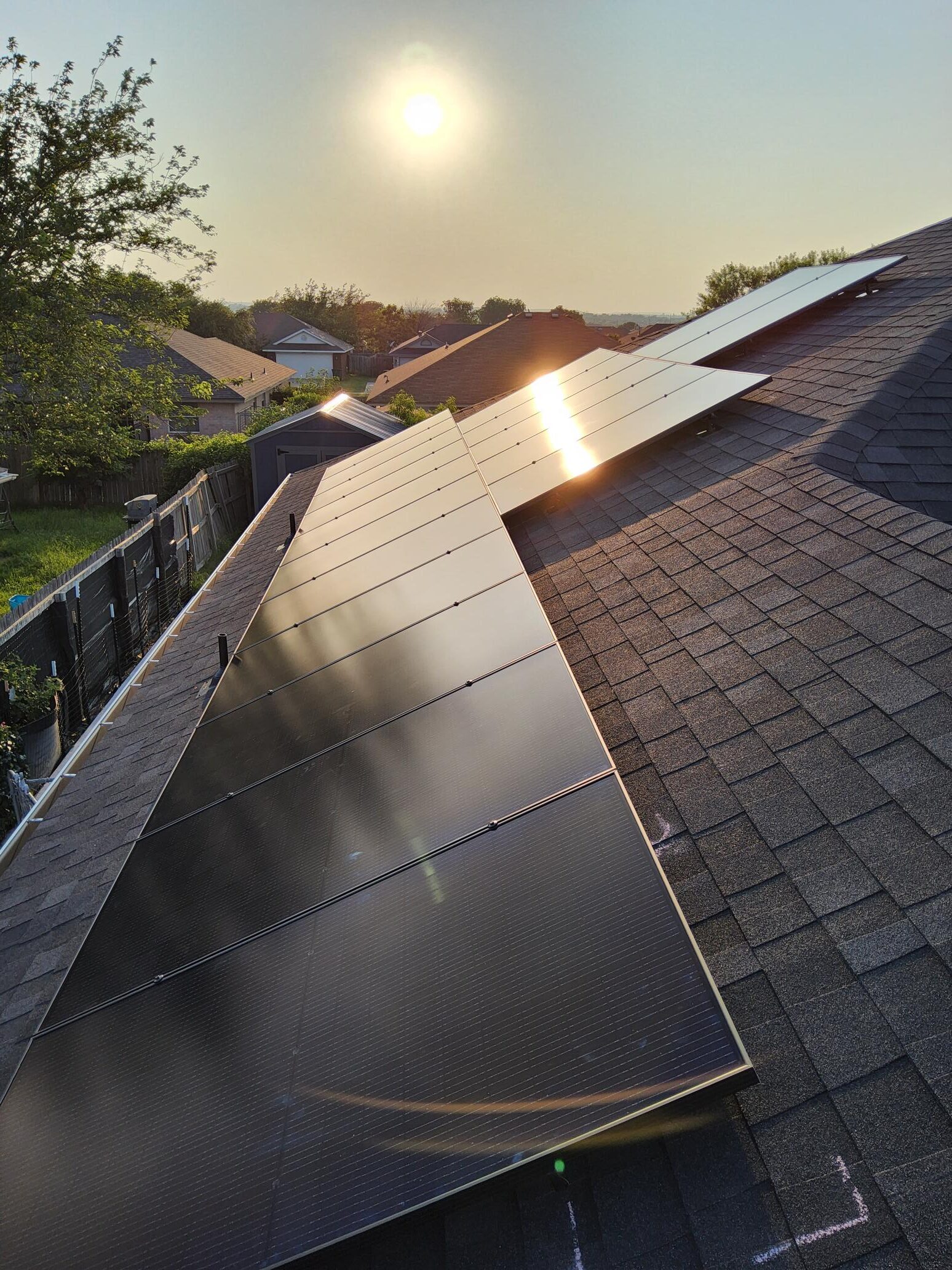Solar Energy FAQ's
What is solar energy?
Overall, solar energy provides a sustainable and renewable source of power by harnessing the sun’s energy and converting it into electricity. It is a clean and environmentally friendly alternative to traditional forms of energy generation.
How does solar energy work?
Solar energy works by harnessing the energy from the sun and converting it into usable forms of power.
What are solar panels?
Solar panels, also known as photovoltaic (PV) panels, are installed on rooftops or in open areas where they can receive direct sunlight. These panels are made up of multiple solar cells, which are typically made of silicon.
How do solar panels create electricity?
When sunlight hits the solar panels, it is absorbed by the solar cells. The photons in the sunlight dislodge electrons from the atoms in the solar cells, creating a flow of electricity. This is called the photovoltaic effect.
How is electricity produced by solar cells converted to the electricity in my home?
The electricity produced by the solar cells is in the form of direct current (DC). However, most of our household appliances and electrical grids use alternating current (AC). Therefore, an inverter is used to convert the DC electricity into AC electricity.
How is the power distributed?
The AC electricity generated by the solar panels can be used to power various devices and appliances in your home or business. It can also be fed into the electrical grid, allowing you to earn credits or offset your energy consumption.
How is excess electricity stored?
Excess electricity generated during sunny periods can be stored in batteries or other energy storage systems. This stored energy can be used during cloudy days or at night when there is no sunlight available.
Do solar panels still work in bad weather?
Solar panels will still make power in bad weather. Due to the occasional bad storm, we calculate the energy production accordingly!
Do I get a tax break for going solar?
Yes! The government is offering a huge tax credit to anyone who goes solar. Many utility companies are offering rebates as well.



Electric FAQ's
Can I DIY and upgrade my own plugs or light switches in my home?
We advise against trying to switch out any outlets/plugs or light switches if you are not a licensed electrician. Untrained personnel could expose themselves to live currents which could result in serious injury or even death.
Resolution: Schedule a service call today to have our licensed electrician to safely install or upgrade your switches/fixtures/plugs.
How do I know if my home panel is unsafe and needs an upgrade?
- Typically service panels in homes built between 1950 and 1980 are considered faulty and could cause fires or electric shock. Below is a list of panels that are considered outdated and unsafe and must upgrade as soon as possible: Federal pacific Panels, Zinsco Panels, Sylvanna Panels, Fusebox Panels, and cloth-type wiring conductors on older homes.
- Other reasons why you may want to upgrade your panel include adding fixtures and outlets/plugs to your existing home or adding energy storage systems, such as generators, solar batteries, or solar panel installation.
- Resolution: Scheduling an Electrical Home Safety Inspection can help determine whether your home is electrically safe or your panel needs to be upgraded.
What is a short or short circuit?
A short or short circuit occurs when the electrical hot wire comes into contact with another wire causing the fuse to burn or blow.
Resolution: Schedule a service call today to troubleshoot and resolve the cause of the short circuit as soon as possible.
Should you be worried if you have an outlet that is not working?
The reason that your outlet is not working could be as simple as just having a bad plug or as serious as a short circuit or an overload. The later two reasons should be addressed as soon as possible.
Resolution: Contact us to schedule a licensed electrician to troubleshoot and resolve the issue as soon as possible.
Why is my light flickering?
In many cases, it could be a mild power surge from the electric company, which is harmless and should resolve on its own. In other cases an outdated panel may not be providing enough power to the light source causing low voltage which results in the light flickering. It could also be due to loose wiring, an old bulb going out or the bulb being too loose.
Resolution: You can try turning off your light switch for a few minutes, then tighten or replace your screw in light bulb to see if the issue resolves. You can try waiting to see if it goes away on its own as will happen with a mild electric company power surge. If the issue does not resolve with switching out the bulb or tightening it, you may need to contact an electrician to troubleshoot the issue and see if it is receiving enough power or has a loose connection.
What causes a circuit breaker to trip?
If you reset your circuit breaker after an initial trip and it trips again, there could be a short in the circuit or you could have too much load on a single breaker.
Resolution: Contact us to schedule a visit by one of our licensed electricians to troubleshoot and repair the issue.






